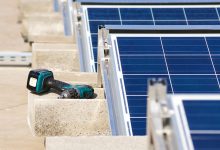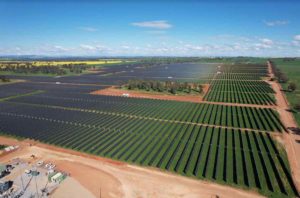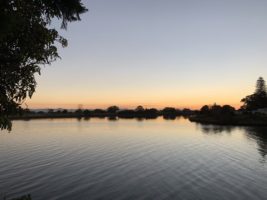Australia’s clean energy industry has called on governments to confirm that the ongoing installation, construction and maintenance of renewable energy projects are recognised as essential services, as new restrictions on are imposed on ‘non-essential services’ in response to Covid-19.
In a letter sent to all federal, state and territory governments, the chief executive of the Clean Energy Council Kane Thornton said that future restrictions on businesses must recognise that services provided by the clean energy sector are essential services.
Late on Tuesday night, prime minister Scott Morrison provided additional details on limits and the cessation of non-essential services, that largely involve a request for people to remain home, unless necessary for essential work or to get household supplies.
“As an essential service, the energy industry is taking the issue of the health and safety of workers and the public with the utmost seriousness,” Thornton’s letter to governments says. “We recognise the immense risks that Covid-19 poses to the health of Australians and to the economy, and like other sectors, the clean energy industry has been working assiduously over recent weeks to prepare for the impacts of Covid-19.”
“It is vitally important that the energy industry can continue maintaining, installing and connecting power generation assets. Energy provision is very clearly an essential service, and this includes the hundreds of renewable energy projects under construction and in operation across Australia as well as the millions of rooftop solar and household battery systems that are all essential to the operation of the Australian electricity system,” the letter adds.
“We therefore believe it is critical that any future restrictions placed on ‘non-essential’ business activity in response to Covid-19 clearly recognises the essential nature of the construction/installation, operation and maintenance of renewable energy and energy storage, as well as energy transmission and distribution.”
The Clean Energy Council has compiled a list of resources that may assist businesses to address the impacts of Covid-19 on their ongoing operations, including financial resources being offered by governments, as well as resources to manage the wellbeing of employees.
Many businesses are moving quickly to adapt to the changes in working practises needed to respond to the Covid-19 outbreak, including shifting a substantial proportion of the workforce to working from home arrangements.
All of Australia’s major energy utilities have made arrangements for most of their staff to work remotely, while implementing special arrangements for those workers, including those critical to the ongoing operation of power stations, with the option of keeping staff isolated on-site under consideration.
However, recognising the more distributed nature of clean energy projects, the Clean Energy Council has asked governments to recognise the need for essential service workers to move between projects and to deliver equipment as needed, while also supporting companies and workers to work collaboratively to minimise travel and contact between workers.
“To enable us to maintain a reliable and secure electricity system at this time, it is also vital that industry can move specialised workers and equipment between regions and jurisdictions to service plant and systems as required. Unlike thermal generation plant, renewable energy generation plant does not typically locate specialist staff and spare parts on site 24/7, and we will require flexibility to respond to equipment failures or undertake maintenance during this time,” the letter says.
“A solution will be required to enable essential service personnel and equipment to move lawfully and efficiently between jurisdictions at short notice. We kindly request your urgent consideration of this matter, and we would be very happy to work with your Government over the coming days in order to consider the practical implementation of this proposal.”
The 200MW Raywood solar farm, proposed for north-western Victoria, is already set to be delayed by a least one month as a result of postponed meetings of the Loddon Shire Council, which is set to grant development approval to the project.
There have been calls for the installation of rooftop solar and storage into homes to be included in a government economic stimulus package, recognising the ongoing benefits that supporting solar installations would have in reducing costs for households and businesses.
The industry has already seen a surge in interest in new installations as households look for ways to increase their self-sufficiency and manage ongoing energy costs.
You can find the latest advice on the Covid-19 response from the Department of Health website. And you can also see our live blog on how Covid-19 is affecting the energy industry in Australia and world-wide.
RenewEconomy will continue to publish throughout the Covid-19 crisis, posting good news about technology and project development, and holding government, regulators and business to account. But as the conference market evaporates, and advertisers pull in their budgets, readers can help by making a voluntary donation here to help ensure we can continue to offer the service free of charge and to as wide an audience as possible.









